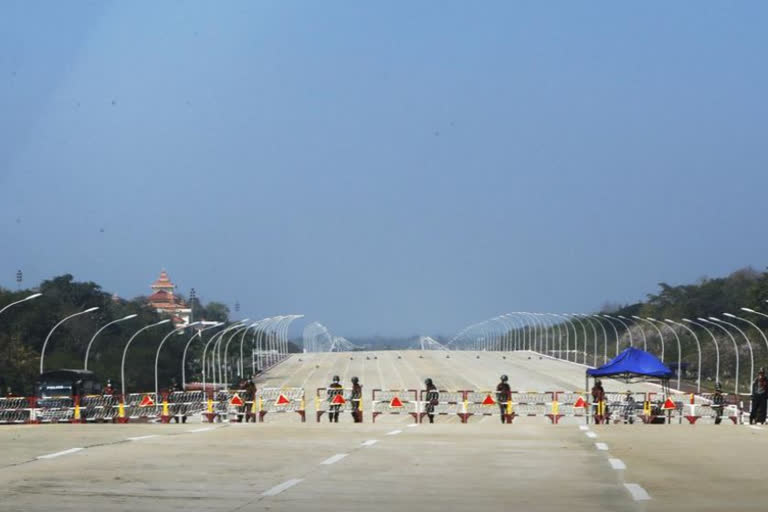United Nations:The head of the UN body investigating the most serious crimes in Myanmar said that preliminary evidence collected since the military seized power on February 1 shows a widespread and systematic attack on civilians “amounting to crimes against humanity.”
Nicholas Koumjian told UN reporters Friday that the Independent Investigative Mechanism for Myanmar, which he heads, has received over 200,000 communications since the army takeover and has collected over 1.5 million items of evidence that are being analyzed “so that one day those most responsible for the serious international crimes in Myanmar will be brought to account.”
In determining that the crimes against civilians appear to be widespread and systematic, he said investigators saw patterns of violence -- a measured response by security forces to demonstrations in the first six weeks or so after the military takeover followed by “an uptick in violence and much more violent methods used to suppress the demonstrators.”
“This was happening in different places at the same time, indicating to us it would be logical to conclude this was from a central policy,” Koumjian said. “And, also, we saw that particular groups were targeted, especially for arrests and detentions that appear to be without due process of law. And this includes, of course, journalists, medical workers and political opponents.”
Myanmar for five decades had languished under strict military rule that led to international isolation and sanctions. As the generals loosened their grip, culminating in Nobel Peace Prize laureate Aung San Suu Kyi's rise to leadership in 2015 elections, the international community responded by lifting most sanctions and pouring investment into the country.
The February 1 military takeover followed November elections which Suu Kyi's National League for Democracy party won overwhelmingly and the military rejects as fraudulent. Since the takeover, Myanmar has been wracked by unrest, with peaceful demonstrations against the ruling generals morphing first into a low-level insurgency in many urban areas after security forces used deadly force and then into more serious combat in rural areas, especially in border regions where ethnic minority militias have been engaging in heavy clashes with government troops.
Christine Schraner Burgener told The Associated Press shortly before her 3 ½ year term as the UN special envoy for Myanmar ended on October 31 that “civil war” has spread throughout the country.
Read:Myanmar court denies bail for US journalist, adds new charge
